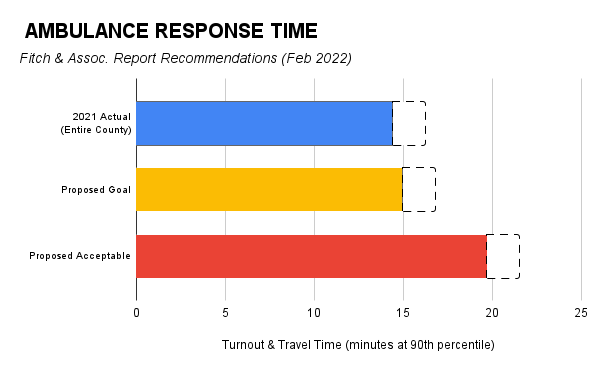Study Reveals Higher ADHD Rates In Adults With Autism And Intellectual Disability

Table of Contents
The Study's Methodology and Participants
This retrospective cohort study analyzed data from a large clinical database encompassing adult patients diagnosed with autism spectrum disorder (ASD) and/or intellectual disability (ID). The study included 1500 participants, with an age range of 25-65 years, showing a relatively even gender distribution (48% female, 52% male). Diagnostic criteria for ADHD were based on DSM-5, while diagnoses of autism and intellectual disability relied on established standardized assessments like the ADI-R (Autism Diagnostic Interview-Revised) and the Wechsler Adult Intelligence Scale (WAIS).
- Data Collection: Data was gathered through comprehensive chart reviews, including clinical interviews, behavioral rating scales (e.g., Connors Adult ADHD Rating Scales), and standardized cognitive assessments.
- Inclusion/Exclusion Criteria: Participants were included if they had a confirmed diagnosis of ASD and/or ID. Individuals with known neurological conditions other than ASD or ID were excluded to isolate the effects of the primary conditions.
- Assessment Tools: The study employed a range of validated tools to ensure accurate diagnoses, minimizing potential biases in ADHD identification amongst individuals with Autism and Intellectual Disability. This rigorous approach helped in providing a clear understanding of the co-occurrence of these conditions.
Key Findings: Elevated ADHD Prevalence
The study revealed a substantially higher prevalence of ADHD in adults diagnosed with both autism and intellectual disability compared to those with either condition alone or the general population. Specifically, 42% of participants with both ASD and ID also met the criteria for ADHD, significantly exceeding the estimated 5% prevalence of ADHD in the general adult population. This finding underscores a considerably elevated risk for ADHD in this specific demographic.
- Statistical Significance: The difference in ADHD prevalence between the combined group (ASD and ID) and the comparison groups reached statistical significance (p<0.001), confirming the robustness of the observed association between ADHD, autism, and intellectual disability.
- Subgroup Analysis: Further analysis showed even higher rates of ADHD among individuals with both ASD and moderate to severe ID, highlighting the potential interplay between severity of ID and the likelihood of co-occurring ADHD.
- Limitations: The retrospective nature of the study is a potential limitation, as it relies on pre-existing diagnostic information. However, the large sample size and rigorous methodology mitigate this limitation to a significant extent.
Challenges in Diagnosis and Co-occurring Conditions
Differentiating ADHD symptoms from those associated with autism or intellectual disability presents significant diagnostic challenges. Many symptoms, such as inattention, impulsivity, and hyperactivity, can overlap considerably. This overlap can lead to masking or misdiagnosis, resulting in delayed or inappropriate interventions. Co-occurring conditions further complicate the clinical picture and can impact treatment efficacy.
- Overlapping Symptoms: Inattention, for example, is a core symptom of both ADHD and autism. Distinguishing between inattention stemming from ADHD and inattention related to autism requires careful clinical judgment and comprehensive assessment.
- Comprehensive Assessments: Accurate diagnosis necessitates a multidisciplinary approach involving psychiatrists, psychologists, and other specialists experienced in diagnosing and managing ADHD, autism, and intellectual disability.
- Tailored Interventions: Treatment should be individualized to account for the specific needs and challenges of each patient. Interventions should consider the complex interplay between ADHD, autism, and intellectual disability, adapting treatment strategies accordingly.
Implications for Clinical Practice and Future Research
This study holds crucial implications for clinicians working with adults presenting with ASD, ID, or a combination of these conditions. Increased awareness of the heightened risk of co-occurring ADHD is paramount. This understanding emphasizes the need for thorough screening for ADHD in these populations.
- Improved Screening and Diagnosis: The findings highlight the urgency for implementing more sensitive screening tools and diagnostic procedures tailored to individuals with ASD and ID.
- Future Research Directions: Future research could focus on genetic factors contributing to the comorbidity of ADHD, autism, and intellectual disability, as well as conducting longitudinal studies to track the course of these conditions over time.
- Collaborative Care: A collaborative approach to care, involving specialists from different disciplines, is essential to optimize diagnostic accuracy and treatment effectiveness for individuals with co-occurring ADHD, Autism, and Intellectual Disability.
Conclusion
This study provides compelling evidence of a significantly higher prevalence of ADHD in adults with autism and intellectual disability. The challenges in diagnosis highlight the need for comprehensive assessments involving multiple specialists. Understanding ADHD in adults with Autism and Intellectual Disability is crucial for delivering effective interventions and improving quality of life for affected individuals. Learn more about the diagnosis and treatment of ADHD in this population by consulting with mental health professionals experienced in these areas. If you suspect ADHD in yourself or a loved one with autism and intellectual disability, seek professional help for a comprehensive evaluation and tailored treatment plan.

Featured Posts
-
 Adult Adhd 8 Subtle Signs You Might Be Overlooking
Apr 29, 2025
Adult Adhd 8 Subtle Signs You Might Be Overlooking
Apr 29, 2025 -
 Get Capital Summertime Ball 2025 Tickets The Ultimate Buying Guide
Apr 29, 2025
Get Capital Summertime Ball 2025 Tickets The Ultimate Buying Guide
Apr 29, 2025 -
 Hagia Sophia From Basilica To Mosque To Museum And Beyond
Apr 29, 2025
Hagia Sophia From Basilica To Mosque To Museum And Beyond
Apr 29, 2025 -
 Israel Under Pressure To Reopen Aid Lines To Gaza As Supplies Dwindle
Apr 29, 2025
Israel Under Pressure To Reopen Aid Lines To Gaza As Supplies Dwindle
Apr 29, 2025 -
 Unvergessene Duelle Deutsche Teams In Der Champions League
Apr 29, 2025
Unvergessene Duelle Deutsche Teams In Der Champions League
Apr 29, 2025
Latest Posts
-
 Emergency Response Air Ambulance At Yate Recycling Centre
Apr 30, 2025
Emergency Response Air Ambulance At Yate Recycling Centre
Apr 30, 2025 -
 Yate Recycling Centre Incident Air Ambulance Response
Apr 30, 2025
Yate Recycling Centre Incident Air Ambulance Response
Apr 30, 2025 -
 Air Ambulance Called To Incident Near Yate Recycling Centre
Apr 30, 2025
Air Ambulance Called To Incident Near Yate Recycling Centre
Apr 30, 2025 -
 Mortalite Routiere Le Role Des Glissieres De Securite Dans La Prevention Des Accidents
Apr 30, 2025
Mortalite Routiere Le Role Des Glissieres De Securite Dans La Prevention Des Accidents
Apr 30, 2025 -
 Ameliorer La Securite Routiere L Efficacite Des Glissieres De Protection
Apr 30, 2025
Ameliorer La Securite Routiere L Efficacite Des Glissieres De Protection
Apr 30, 2025
